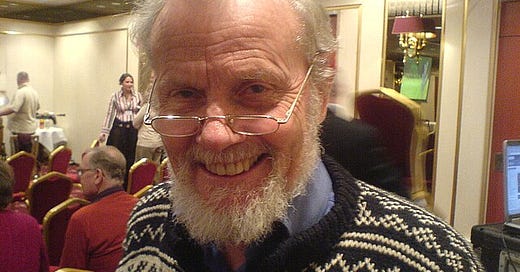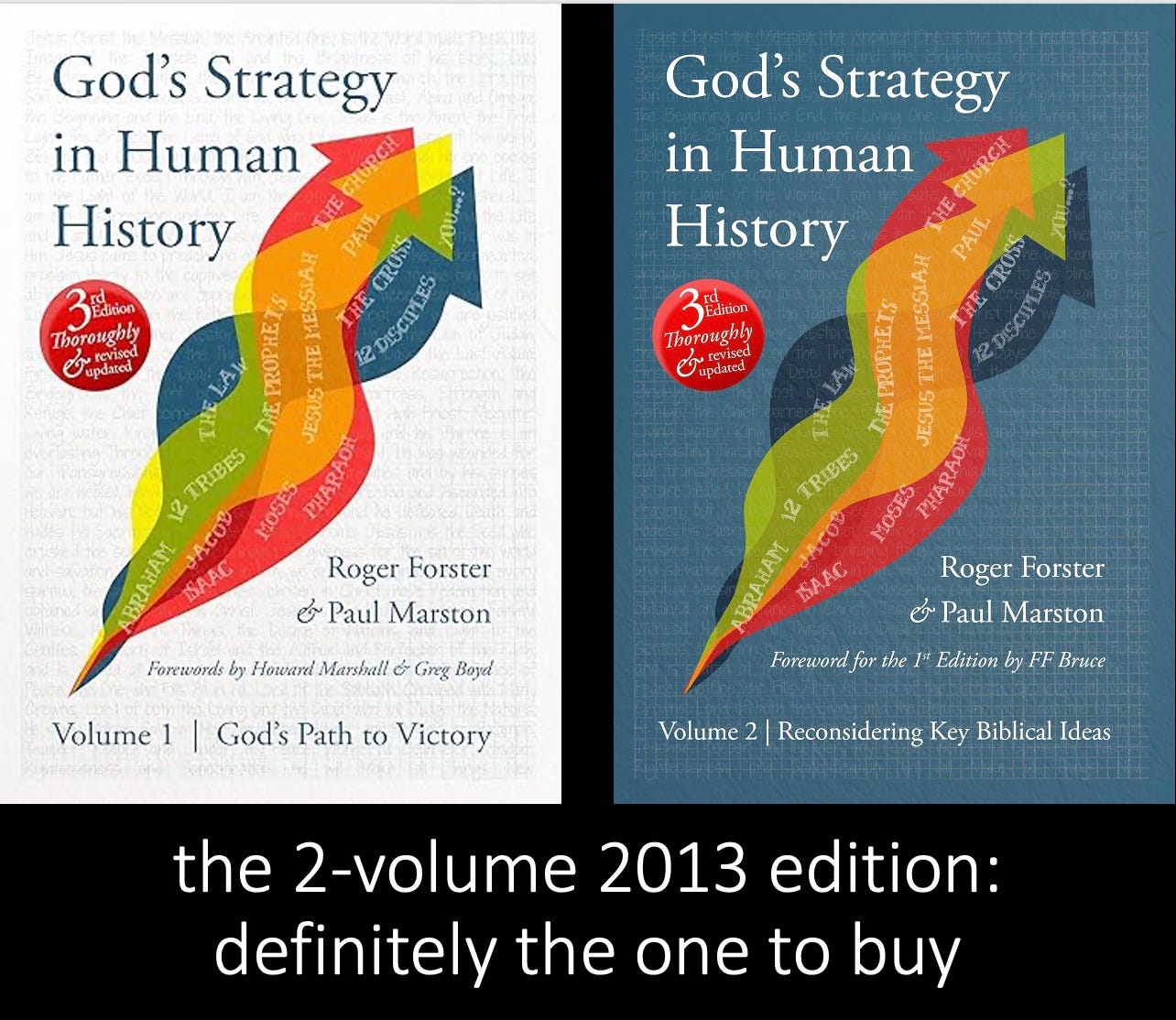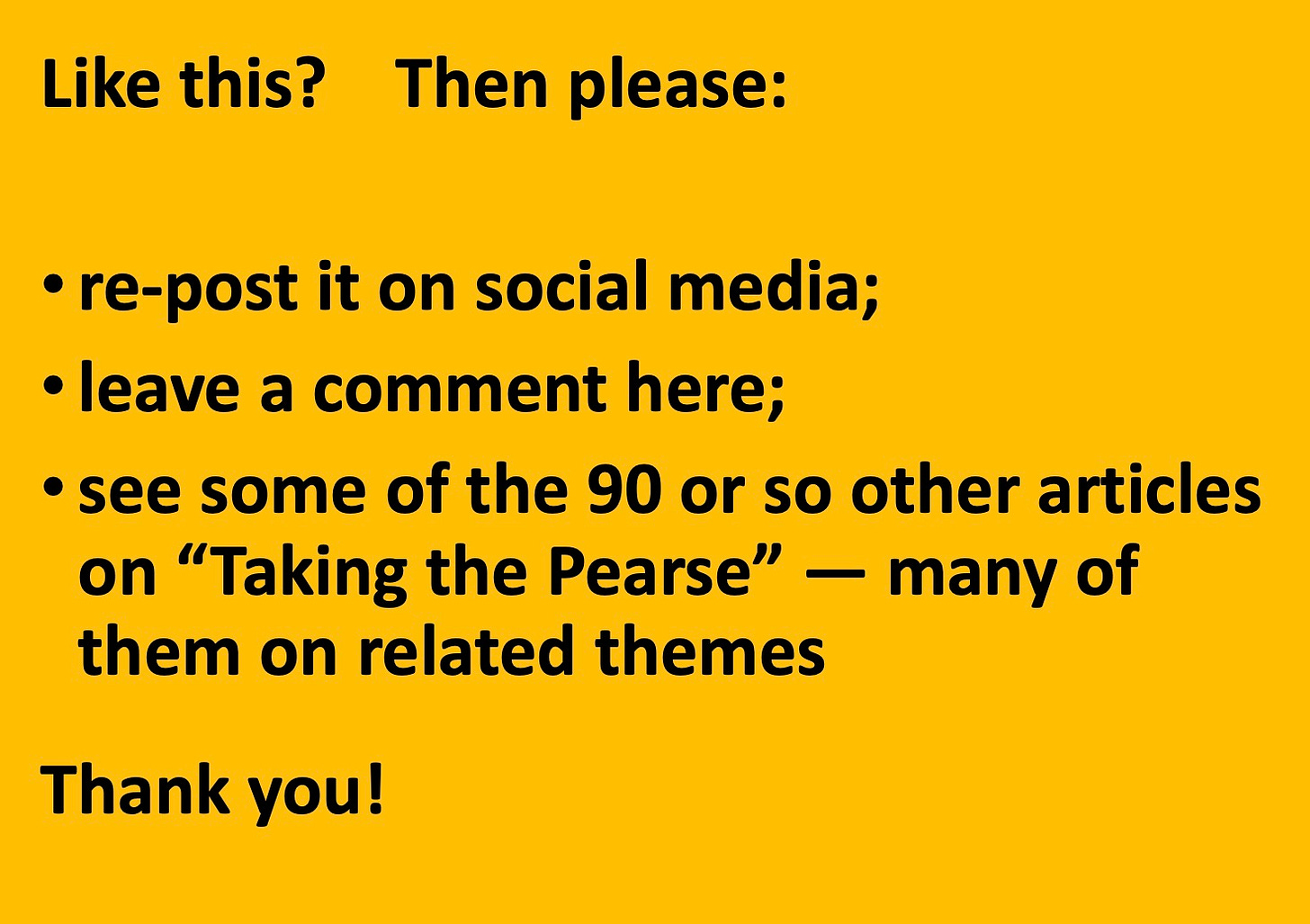Roger Forster was, in many ways, my hero.
His warmth, faith, and passion were absolutely contagious. No wonder he was such an effective evangelist and church planter. His passing yesterday is an enormous loss. Goodness knows, we have preachers aplenty. About 10% of them are even worth listening to. But almost none of them have the combination of intellectual heft, popular relatability, and steady, evangelistic fire that Roger had.
In the mid-1950s, when he was briefly an RAF officer, he held church meetings in a pub, a club, or a private home — which counted as radical then.
For most of the next two decades, he was an itinerant evangelist. I first met him when he and Roger Mitchell came to run our university CU mission week in Swansea.
Shortly before, in 1974, he had started Ichthus Christian Fellowship in south London. It grew enormously during the following decades, but never became a mega-church, preferring instead to plant many local congregations across London suburbia and the inner city.
And the impact ballooned outwards from there across the country — and then the planet. Evangelism, missions, practical service. Radical churchmanship — but utterly devoid of the authoritarianism or 'superiority ethos' that marred ... (let us say) some other charismatic groups. Roger and the movement he led were always completely open-handed in friendship and plain dealing. The fact that, despite his radical credentials, he was welcomed to serve on the boards of such broad-based organisations as TEAR Fund and the Evangelical Alliance speaks for itself.
A decade or two ago, it finally dawned on me: without consciously adopting his theology wholesale (after ferreting my way, over years, to what I fondly imagined were my own conclusions), I realised that I had, unwittingly, done so anyway. On occasion, when meeting a new person who is clearly theologically clued up, I have short-circuited a long, tedious conversation by saying that I am "basically, a Roger-Forsterian". The sociologist Andrew Walker[1] called him "the finest mind in British evangelicalism" — and he almost certainly was.
His books were almost all aimed at a popular market. But the most serious, God's Strategy in Human History had a big effect on me, as on many others. Nearly half a century later, the thing that strikes me most about the first edition (there have been several more since) is that it is the only book I know where the extensive footnotes were even more fascinating than the main text!
I was asked to write a back-cover commendation for the 2000 edition, and wrote:
"For decades, this superb book has been quietly changing people's theology and influencing their lives out of proportion to its public profile. It has been a book 'for those in the know'.[2] It is wonderful to see it appear in a new, updated and improved edition.[3] I hope and pray that its biblical and historical vision will impact the rising generation of 'movers and shakers' even more widely and profoundly — and certainly more publicly — than it has the current generation."
In 1998, I very cheekily offered to give a 'supporting' talk at a major conference he was organising in Westminster for the theologian Clark Pinnock. And he accepted! (A quarter century later, I still look back on that as the most successful talk I've ever given anywhere, about anything. And I also got to spend an afternoon pottering around London with Clark.)
So a couple of years later, when Roger was organising a similar conference for the U.S. theologian Greg Boyd, he invited me to be a third-string speaker again. I was flattered but flummoxed: the proposed theme was on the one topic on which I did not really agree with Roger.[4] I remember a ´phone call in which I apologised profusely that I did not wish to embarrass him (or myself) — and he persisted in arguing that a certain topic I was competent to speak on fitted perfectly with the overall theme without committing me to the stuff at which I balked.
I finally heard myself saying "OK, Roger. Yes, Roger. That'll be fine, Roger." and putting the ´phone down. And ... in the event, it all went off superbly. (Further — and contrary to my misgivings — what Greg Boyd had to say totally bowled me over.) It was all completely in synch with the persona Roger projected in public: encouraging; positive; you-can-do-it; God-is-good; this-will-all-come-right.
A friend has just now informed me that, in his flurry of recent books, Roger quoted me with approval on several occasions. This is very flattering: to the end, it was I who remained the pupil. Albeit a pupil who is now feeling a little bereft.
This is a glorious day for Roger. But, for the rest of us, it is a sad day indeed.
[1] Andrew Walker (1954-2021) was a sociologist and author of Restoring the Kingdom (1998), among much else.
[2] I was blundering about here for an English equivalent of the German Kenner.
[3] This was not strictly true. Printed by Wipf & Stock, it had needed major copy-editing, and had received none. If you buy this book — as you really should! — avoid the 2000 edition.
[4] This was a worryingly super-spiritual take on the meaning of 'spiritual warfare': 'territorial spirits' and such dubious concepts.









Like losing Spiritual dad